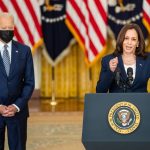In a world increasingly shaped by the narratives spun from the halls of power, the importance of honesty in politics cannot be understated. Recent reports have surfaced indicating that the FBI covertly revised its crime statistics, raising questions about the integrity of both information and the officials responsible for disseminating it. Initially, the FBI reported that violent crime had fallen by 2.1% in 2022. However, after adding data that was previously left out, they later revealed that violent crime had actually increased by 4.5% compared to the previous year. This discrepancy, which only came to light through quiet revisions, has led to a wave of concern regarding transparency and trustworthiness within the system.
This situation highlights intended deceit and exposes a deeper moral failing within our political system—a recurring pattern that echoes throughout history. As America grapples with inquiries into the truthfulness of our leaders, it is essential to reflect on the significance of honesty in governance.
It has been said that there are three main types of lies: commission, omission, and paltering. Commission lies are outright fabrications. Omission involves leaving out crucial facts, thus misleading through silence. Paltering is a more nuanced deception where truthful statements are employed to mislead. As citizens evaluating candidates, we must look beyond the surface—how candidates communicate can often reveal their true intent.
In the recent context of crime statistics, the FBI initially suggested a decline in violent crime. Still, those figures were based on incomplete data, excluding major urban centers where crime remains a significant issue. This revision of the facts conceives a false narrative that benefits politicians trying to secure votes under the guise of progress. Such actions evoke a sentiment from history, reminding us of how propaganda has often shaped public perception for political gain. Trust in the media has diminished, indicating widespread disillusionment as people increasingly scrutinize the narratives presented to them.
This environment elicits a sense of concern for the future of American democracy. The questioning of political figures’ legitimacy, character, and intent illustrates a broader breakdown of civility and respect in public discourse. Historically, the media has been a watchdog, serving as a check on power. Today, however, many view the mainstream media as a mere extension of political agendas rather than impartial purveyors of information. This shift has provoked dangerous skepticism—a populace wary of the institutions designed to inform and protect.
In light of these revelations, voters must ponder what qualities they truly desire in their leaders. Honesty and transparency should stand paramount in any candidate’s character. Yet, as history has shown, the allure of expedient narratives often overshadows the truth. This is where moral obligation intersects with civic duty; the responsibility lies with those who seek power and the people who grant it. The conscious choice to demand clarity and integrity becomes crucial for sustaining democracy.
Finally, as citizens navigate the complex political landscape, drawing on lessons from the near and distant past becomes vital. Reflecting on the intentions and actions of our leaders allows for a more profound understanding of the present. Embracing the honesty narrative becomes not just an obligation but a guiding principle. In an age where information can be distorted, and misinformation proliferates, the clarion call for integrity in our political system stands resolute. The future of democracy depends on voters’ resolve to seek out the truth and uplift those who embody it.




